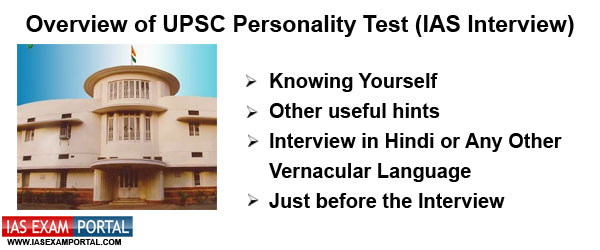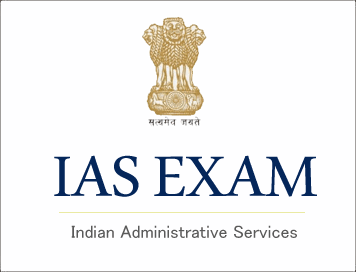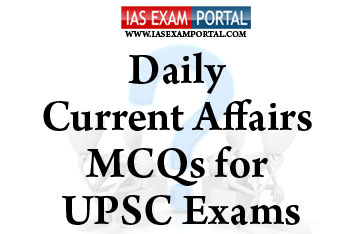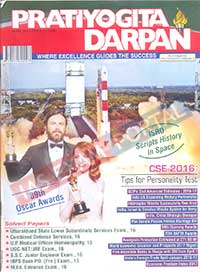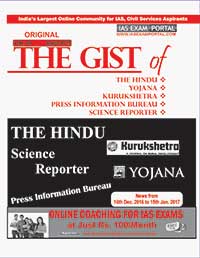![]()
Overview of UPSC Personality Test (IAS Interview)
IAS
Mains Result are out, and the process of the next and final stage of civil
services examination would commence soon. The candidates who have qualified for
the Personality Test, need to prepare
themselves for this stage carefully. Though the weightage of the personality
test is comparatively less ( with total marks of 275), but its role in deciding
the final outcome can be immense. Candidates can secure as high as 70-75% of the
total marks of the interview. This can significantly boost one’s final standing
in the merit list.
Thus, it would be a mistake to take the interview lightly. Also, it might be
the most important interview, of an aspirant’s life.
In order to help all the candidates who have qualified for the personality
test , IASEXAMPORTAL presents an overview of the interview process, and solid
strategy to do good.
![]()
The above graph
shows the proportion of the Interview in the aggregate score of the candidate.
If you notice carefully, a very good performance in the Mains is the one that is
able to secure 50% marks (according to the analysis of the recent Mains exam).
However, if you analyze the recent scores of the candidates in the Personality
Test, you would observe that, it is easy to score as high as 70-80% in the
interview. This kind of performance can give a fillip to your aggregate score in
the final merit list. Thus, You must focus on performing well in the interview.
Since you have done your ‘karma’ in the Mains, now is the time to show your
metal in the interview.
Knowing Yourself
The Personality test is not meant to test your expertise on
academic issues. You have already proven your competency in the academic field,
in the MAINS examination. Thus, the purpose of the interview stage is to
evaluate you, as a person, and to test your suitability as a civil servant.
Thus, do not attempt a deep research into the traditional texts, that you
followed for the Mains. Instead, what is of great value, from the interview
point of view, is to know about each bit of word, that you have put in the DAF
form.
The interview panel knows you from the DAF form, that was submitted by you.
Thus, you are expected to know, in detail, about the various aspects of
yourself.
Generally, the interview panel is very accommodating, and
does not try to make you feel uncomfortable. The interview generally starts with
an introduction of the interviewers and the candidate, and goes into the
discussion on personal details of the candidate. In this context, it is
important to know about your socio-cultural background, your native town, family
background and any possible thing about yourself. Thus, in the coming days, you
should try to know everything about yourself and the world that belongs to you.
Talk to your family members, know about your family history;
about your native town; meaning of your name and surname. Apart from that, you
must develop a comprehensive knowledge about the hobbies and interests, that you
have mentioned in the DAF form.
For instance, if you have written cricket
as a hobby, you might be asked about the general evolution of the game; the
latest system that governs the format of international cricket; state of
women's cricket; the changes introduced in recent times.
If you have given 'Watching Movies' as a
hobby, be prepared to face questions on different cinema organizations,
international updates on cinema world, recent awards and evaluations, apart
from your other areas of interest.
Next, you should be abreast with your
educational background
and the reason that you chose the field. You should also be able to link the
recent developments in the subject of your specialization. You might also be
asked the reason for pursuing the civil services as a career. Remember, you are
expected to express your own views, and not the bookish 'gyaan'. So, do not rely
overwhelmingly on books and texts, to find answers. Books should be only an
instrument to enrich your understanding, and make you better able to answer the
questions.
Next, you must develop a comprehensive knowledge about your
native state. Know about its culture, society, history, political development,
general status, and social problems. You should be able to provide an insight in
the various aspects of the state and society, to which you belong. Thus, now is
the right time to start studying about your state and society.
![]()
Other useful hints:
The Interview panel consists of highly
qualified officials, from different walks of life. Therefore, do not try to fool
them. This might backfire badly, and bring adverse consequences for your result.
Instead, if you are not aware of the answers to the questions asked, the best
thing to do is to state frankly saying , 'Sorry, but I am not aware about this'.
Be confident in what you are saying. Lack of
confidence and frequent fumbling gives a wrong impression. Thus, practice on
your speaking skills and talk with confidence. In this context, taking mock
interviews might be very helpful, as it helps you to prepare to face the
interview environment. Secondly, do not sit in the interview with a stress on
your face. A smiling face gives a positive vibe and adds to the impression.
Thus, work on your body language, to imbibe a positive energy in you.
Be Optimistic. Too much of negativity might not be
helpful. However, it is alright to provide a fruitful critique for something,
but it shall be supplemented with a justifiable remedy to the problem. Your
answer should reflect your ability to analyze and resolve the problems of
administration.
Most importantly, keep yourself composed and calm at
all times. Getting over-excited might reflect an immaturity of behaviour. Thus,
compose your emotions and feelings, and act modestly.
IAS interview is not a round of question-answers; neither is
it like the ones shown on television shows, like roadies. The interview panel is
highly qualified and modest in their approach. Thus, you must live up to their
expectations. The Interview process is designed as a friendly conversation and
healthy discussion.
For an example of interview process please see:
![]()
Interview in Hindi or Any Other Vernacular Language:
There is an option to take the personality test in Hindi or
in Vernacular languages, provided in the notification of the UPSC. However, very
often, candidates with the Hindi, or any other vernacular, medium feel
demotivated in taking the interview in a non-English medium. However, you must
understand that- since you have qualified for the personality test, on the basis
of your merit, there is no need to feel demotivated. You should not be
embarrassed of the medium of your education. Rather, take pride in what you know
and what you have achieved. Going to an interview, with a negative attitude
might give a wrong impression. However, if you face the interview board with
confidence, you add to your potential and caliber.
It is not that the interview board does not know about the
limitations, that might be created due to a lack of competence in English.
However, you have been called for the personality test because the interview
board has been impressed by your performance in the earlier stages of civil
services examination.
Thus, do not let the consideration of language come into your
way. You must have a command on the medium in which you have to face in the
interview board. When you succeed in overcoming this psychological concern,
nothing can stop you from getting success.
Just before the Interview
Before sitting for the interview you
need to do some formalities:
I. Questionnaire:
required for the research and analysis section of UPSC and is used for assessing
background information of the candidate appearing for the personality test/
interview. The questionnaire is divided into the following sections:
- General Information
- Background of the candidate
- Employment status
- Previous Civil Services attempts
- Competitive exams cleared
- Reasons for interest in Civil Services
- Education particulars
- Background of Parents/Guardian
- Source of information for Civil
Services
- Coaching attended
- Number of attempts made for Civil
Services
- Optional subject chosen
II. Attestation Form:
The attestation form is to be filled with required details including residence,
nationality education etc and is to be signed by a Gazetted officer before being
submitted at the time of the interview.
P. S. If you
have applied under SC or ST or OBC, or Physically Handicapped category then fill
in and submit the respective certificate.
Following these guidelines, you would find the interview process a piece of
cake.
You may contact
us for further support and assistance. We are happy to help anyone and
everyone.
We wish the Candidates, All the Best!!
Team IASEXAMPORTAL
©
IASEXAMPORTAL.COM


